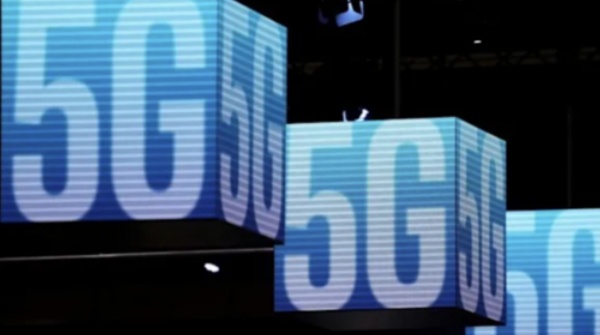The healthy development of 5G drives a new round of growth in the digital economy

5G is one to two orders of magnitude higher than 4G in
various performances, so it has a powerful enabling role and will reshape the
information structure and operation mechanism of the Internet of Things,
Industrial Internet, Energy Internet, and Industrial Internet.

"5G construction is developing healthily, and China has
become a locomotive for the development of the global digital economy." On
August 30, the "International Symposium on Future Information and
Communication Technology-ICDT Driven by Innovation in the Next Decade" was
held. China Telecom's chief expert, Bi Qi, director of the Expert Committee of
China Telecom Research Institute, used a string of data to show the full power
of the "locomotive": At present, the number of domestic 5G package
users has reached 500 million, accounting for 31% of the entire package, an
increase of about 22% over the same period. China is leading the development of
the 5G industry chain, and this year's 5G mobile phone shipments have accounted
for 73%. In terms of average traffic, it was about 9GB last year. According to
current forecasts and calculations of 5G capacity, it is estimated that it may
reach 100GB by 2025, which is basically three times the global average. The
average traffic of global users is about 30GB.
Wu Hequan, academician of the Chinese Academy of Engineering
and chairman of the Future Mobile Communications Forum, said that 5G is one to
two orders of magnitude higher than 4G in various performances, so it has a
powerful enabling role and will reshape the Internet of Things, Industrial
Internet, Energy Internet and industry. Internet information structure and
operating mechanism.
According to Bi Qi, according to the practice of China
Telecom, the largest and most active part of 5G in the development of vertical
industries is still in industry, such as mining and electronics manufacturing,
followed by government affairs, such as smart government and smart. Urban
construction; medical treatment and transportation; education and finance, etc.
China Mobile Chief Scientist Yi Zhiling gave an example: “We
have built the first 5G smart port, smart coal mine and 5G smart city. There
are also 5G smart factories, 5G smart universities, 5G industrial parks, 5G
smart hospitals and other application cases.”
In this regard, Zhang Xinsheng, Secretary-General of the
Communications Science and Technology Committee of the Ministry of Industry and
Information Technology and executive vice chairman of the Future Mobile
Communications Forum, said that 5G is being applied to various industries,
consumer fields, industry industries, and social and people's livelihoods.
Huang Ying, vice president of Lenovo Group, said that the
intelligent transformation of new IT is of great help to the promotion of
intelligent manufacturing. In the future, deterministic networks and computing
power-aware networks will bring greater help, and there will be more
innovations in computing. , I look forward to exciting developments in digital
twin technology in areas such as smart cities, energy and networks, and AR
technology in areas such as smart education, cloud gaming, and medical care.
Compared with industry enterprises actively embracing 5G,
individual users are still "insensitive" to 5G technology. In this
regard, Xia Xiaofei, senior vice president of Unigroup Zhanrui, said that
mobile Internet applications are typical technology-driven applications, and
users’ perception needs technology and applications to lead. "4G compared
to 3G solves data services and solves the problem of people. For the experience
of data between people and things, 5G is more about solving the connection between
things. With the changes in display materials, AR and VR are expected to usher
in explosive development in the next two to three years."
Xia Xiaofei said that the entire 5G future is the industrial
Internet. 5G may extend to industrial manufacturing, autonomous driving, and
telemedicine. It will truly solve the problem of the connection between things
and things, so that the connection between things and things in the future can
quickly catch up, and even surpass the connection of the entire smartphone by a
factor of ten.
The support of basic technology is indispensable. Ma
Hongbing, general manager of the Science and Technology Innovation Department
of China Unicom, said that whether it is base stations, core networks, clouds,
and edges, it is necessary to build an updated R&D system to develop
independent, controllable and sustainable smart technologies based on open
source. To this end, the government, enterprises, universities, and research
institutes should unite to create a safe and credible team and alliance based
on the cooperation of the credit and innovation industry, based on open source,
and with common research strength, so that the network can be controlled
independently and in the future. Continuous industrial cooperation has laid a
solid foundation.
"With the deepening of 5G, we will further refine the
development of 5G, not only in terms of speed, but also in terms of delay can
also create new space." Bi Qi said that whenever a new generation of
mobile communication technology arrives, the digital economy will There is a
relatively good cyclical development, "We are very much looking forward to
the deployment of 5G, which can drive a new round of growth in the country's
digital economy."